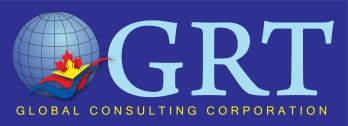Apply to immigrate to Canada
There are different programs that allow you to immigrate to Canada permanently.
If you already know which program you want to apply for, find out how to do so below:
- Skilled immigrants (Express Entry)
- Quebec-selected skilled workers (or investor or entrepreneur program)
- Start-up visa
- Immigrant Investor Venture Capital Pilot Program (for people with high net-worth who can invest in the Immigrant Investor Venture Capital fund)
- Self-employed Persons Program
- Family sponsorship
- Provincial nominees
- Caregivers
- Refugees
Visit Canada as a tourist
To visit Canada, you must:
- have a valid travel document, such as a passport,
- be in good health,
- convince an immigration officer that you have ties—such as a job, home, financial assets or family—that will take you back to your home country,
- convince an immigration officer that you will leave Canada at the end of your visit, and
- have enough money for your stay. (The amount of money you will need can vary. it depends on things like how long you will stay, and whether you will stay in a hotel or with friends or relatives.)
You may also need a:
- temporary resident (visitor) visa
- medical exam and
- letter of invitation from someone who lives in Canada.
Study in Canada
You need the following documents to apply for a study permit:
- Proof of acceptance
- Proof of identity
- Proof of financial support
- Letter of explanation
If you are not a citizen of the country where you submit your application, you may have to provide proof of your present immigration status in the country where you apply.
If the government that issued your passport or travel document requires a re-entry permit, you must obtain one before you apply for a Canadian visa. Other documents may also be required.
1. Proof of acceptance
If you plan to attend any school (primary or secondary), college, university or other educational institution in Canada, the school must complete and send you a letter of acceptance. You must include the original letter with your study permit application. You can find a standard letter of acceptance in the Related Links section at the bottom of this page.
2. Proof of identity
You must provide:
- A valid passport or travel document for you and each accompanying family member. The passport or travel document must allow you to return to the country that issued it. Citizens and permanent residents of the United States, St. Pierre and Miquelon, and Greenland do not need a passport, but do need proof of status and citizenship, such as a national identity card or an alien registration card.
- Two recent passport-size photos of you and each accompanying family member. The name and date of birth of the person should be written on the back of each photo. You can find information on photo specifications in the Related Links section at the bottom of this page.
3. Proof of financial support
You must prove that you can support yourself and the family members who accompany you while you are in Canada. You can prove that you have sufficient funds to support yourself in Canada by showing some of the following:
- proof of a Canadian bank account in your name if money has been transferred to Canada;
- proof of a student/education loan from a financial institution;
- your bank statements for the past four months;
- a bank draft in convertible currency;
- proof of payment of tuition and accommodation fees;
- a letter from the person or institution providing you with money; and
- proof of funding paid from within Canada if you have a scholarship or are in a Canadian-funded educational program.
The following table shows the minimum amounts that you will need.
| Number of persons | All provinces except Quebec | Quebec |
|---|---|---|
| Single student |
Tuition plus $10,000 for a 12-month period (or $833 per month) |
Tuition plus $11,000 for a 12-month period (or $917 per month) |
| + one family member |
$4,000 for a 12-month period (or $333 per month) |
$5,100 more for a person 18 years of age or older for a 12-month period (or $425 per month) $3,800 more for a person under 18 years of age for a 12-month period (or $317 per month)
|
| + each additional family member |
$3,000 for a 12-month period per dependent child of any age (or $255 per month) |
$5,125 more for a person 18 years of age or older for a 12-month period (or $427 per month) $1,903 more for a person under 18 years of age for a 12-month period (or $159 per month) |
If there are foreign-exchange control measures in your country, you must provide proof that the exchange control authorities will allow you to export funds for all of your expenses.
4. Letter of explanation
In some cases, you may wish to apply for a study permit even if you do not need one right away. There are benefits to having a study permit, even if you do not require one. If you have a valid study permit, you can:
- work part time on campus at the college or university at which you are registered as a full-time student; and
- apply to renew your study permit from within Canada, if you decide to continue studying in Canada.
If you decide that you want to continue your studies in another program after you complete your short-term course or program, you must apply through a Canadian visa office outside Canada for a study permit if you do not already have one.

